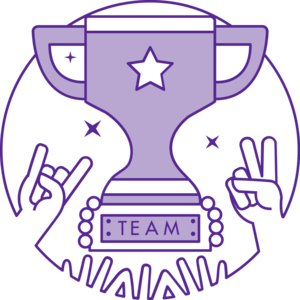
Mapping Organizational Culture
As a leader or manager in a large organization, you probably have a sense of the culture and people challenges facing you, but at the same time, you must also manage not only down but up and across the organization.
Culture Mapping gives you the intelligent information you require to make a business case for the interventions, executive support, and budget you will need to minimize risk and maximize the chances of success for your change initiative.
Goal
Assess, map and transform organizational culture via deep reflection.
Materials
Instructions
Step 1:
How To Play
There are several games and variations you can play with the Culture Map. Here we describe the most basic game, which is the mapping of an organization’s existing culture.
Before you begin mapping, review with the group the Culture Map sections. A garden plays a useful analogy:
The outcomes in your culture are the fruits. These are the things you want your culture to achieve, or what you want to “harvest” from your garden.
The behaviors are the heart of your culture. They’re the positive or negative actions people perform everyday that will result in a good or bad harvest.
The enablers and blockers are the elements that allow your garden to flourish or fail. For example, weeds, pests, bad weather, or lack of knowledge might be hindering your garden. Where as fertilizer, expertise in gardening specific crops, or good land might be helping your garden to grow.
Step 2:
Start with Behavior
It tends to be the easiest to discuss. These are the things we see everyday, the things we talk about when we ask someone if they “want to grab a coffee?” Use the guide questions to prompt ideas.
Write a single behavior on a sticky note, put it on the map. Before moving to the next step, group similar behaviors and remove duplicates.
Recommendation: be as specific as possible, use stories to elicit detail and specificity; avoid the tendency to be generic in describing these behaviors. Ask the players: how would you describe this behavior as a scene in a movie?
Step 3:
Move to Outcomes
Go behavior-by-behavior and use the guide questions to prompt ideas, the most important being: What happens to the business because of the behaviors?
Write a single outcome on a sticky note, put it on the map near its related behavior. Use a marker to draw a line between a behavior and its direct outcome.Step 4:
Move to Enablers and Blockers
Go behavior-by-behavior and use the guide questions to prompt ideas. Enablers and blockers describe why we behave the way we do: a listing of organizational incentives.
Write a single enabler or blocker on a sticky note and place it near it’s related behavior. Use a marker to draw a line between an enabler or blocker and its resulting behavior.Step 5:
Reflection
Once you have taken a pass at each section, examine the map and discuss with the group. Do the relationships make sense? Are the behaviors as detailed as they could be? Has your discussion sparked any other thoughts? If so, add them to the map.
Recommendation: Keep relationships as direct as possible. For example, a behavior should have only one outcome and one enabler or blocker. It is likely this will not happen without discussion, editing and refinement. For clarity and communication, keep the relationships as simple as possible. See sample in link.
Background
The Culture Map was developed by Dave Gray and Strategyzer AG
Source: Hyper Island toolbox
Hyper Island designs learning experiences that challenge companies and individuals to grow and stay competitive in an increasingly digitized world. With clients such as Google, Adidas, and IKEA, Hyper Island has been listed by CNN as one of the most innovative schools in the world.




Comments (0)